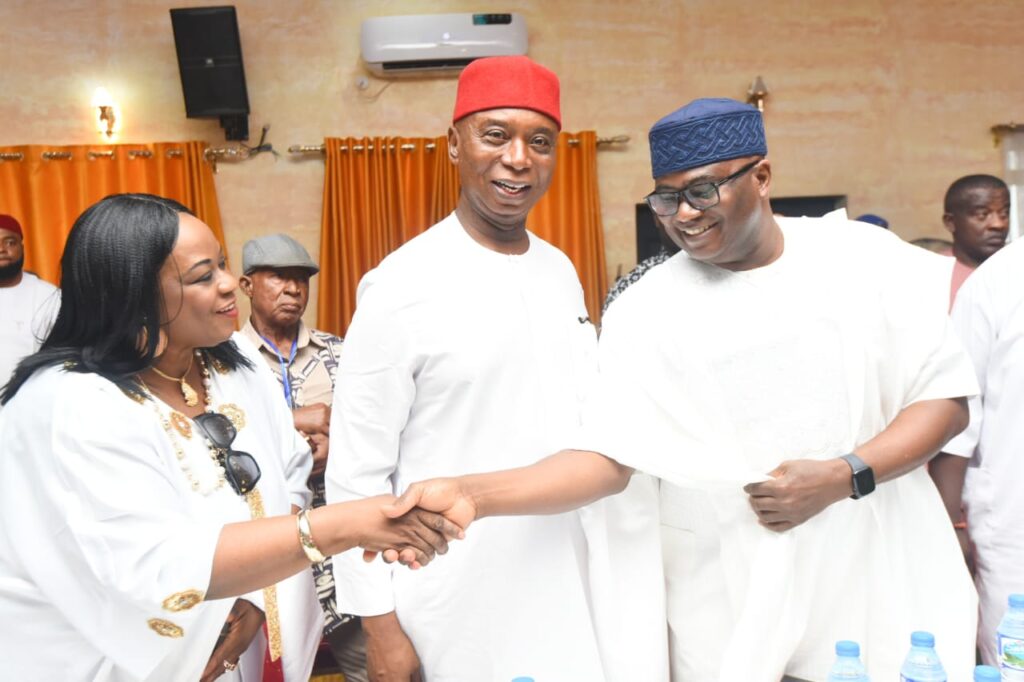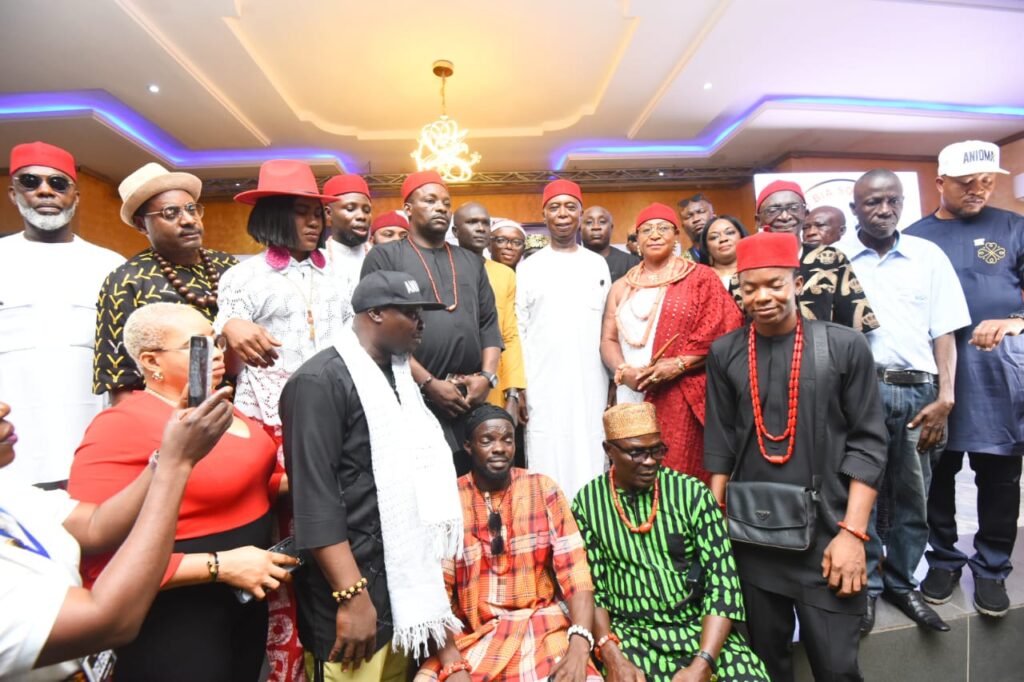ASABA – Senator Prince Ned Nwoko, representing Delta North Senatorial District, has called on the Anioma people of Delta State to fully embrace their Igbo identity and work with other Igbo-speaking communities to build a stronger and more united Nigeria.
Nwoko made the appeal on Friday in Asaba during the Igbo Unification Movement conference, organized in partnership with the Ndi na Asu Bia Socio-Cultural Organization. The event carried the theme “Igbo Bu Ofu” (Igbos are One).
The conference brought together political leaders, traditional rulers, academics, and cultural advocates to discuss the unity of Igbo-speaking groups, including Anioma in Delta, Igbanke in Edo, and other border communities.
Governor’s Message
The event was officially declared open by Delta State Governor Sheriff Oborevwori, who was represented by his Chief of Staff, Johnson Erijo. He assured that the government would continue to support socio-cultural organizations that promote unity and peace.
Ned Nwoko’s Speech
In his address, Senator Nwoko stressed that Anioma people are Igbo and should no longer shy away from that identity.
“There is no argument about our Igbo-ness. We, the Anioma, are Igbo. The time has come to reverse the old narratives that separated us from our brothers across the Niger,” he said.
Nwoko, who recently sponsored a motion in the National Assembly for the creation of Anioma State, explained that his push is not about personal ambition or political party affiliation but about correcting historical imbalances.
“This is not about APC, PDP, or Labour Party. I have no interest in being governor, but I want Anioma to stand tall with its own state, with Asaba as its capital. That way, we also fulfill the dream of Ohanaeze Ndigbo, which has always recognized Anioma as one of the Igbo states,” he said.
The senator also recalled his childhood experience during the Nigerian Civil War, when Anioma communities suffered ethnic violence and some denied their Igbo identity to survive. He said the painful history of identity crisis must now give way to truth and reconciliation.
He further praised researchers like Professor Abigail Ogwezzy of the University of Lagos, whose work on Anioma language and history has provided evidence of the people’s Igbo roots.
Other Voices at the Event
- Chief Cosmas Agada, Chairman of the Local Organizing Committee and patron of Ndi na Asu Bia, described the group as an Igbo nationalist body registered with the Corporate Affairs Commission in 2020. He explained that it draws membership from Igbo subgroups across Nigeria and from diaspora communities in America, Europe, Asia, and the Caribbean. The group, he said, helps communities resolve identity crises and sometimes undertakes small development projects.
- Kingsley Kainebi, President of Ndi na Asu Bia, thanked participants for their support and urged them to take seriously the recommendations of the conference so that Igbo people can “stand together as one united ethnic group.”
- Obi Onyemaechi Josiah Kanyinaga I, the traditional ruler of Obomkpa, also backed the movement. He said misinformation had caused divisions, but the truth remains that Anioma people are Igbo. “If you ask anyone from Anioma or the East how to say ‘come,’ they will say ‘Bia.’ Is that not Igbo?” he asked. The monarch also praised Senator Nwoko, calling him a “politician with uniqueness” who is committed to true leadership and the creation of Anioma State.
Highlights of the Event
- The conference featured lectures by renowned professors and cultural experts.
- Ndi na Asu Bia Television, a new platform for cultural education and advocacy, was officially unveiled.
The Bigger Picture
The Igbo Unification Movement and Ndi na Asu Bia have, in recent years, been at the forefront of campaigns for the cultural, historical, and political unity of Igbo-speaking groups in Nigeria.
Supporters argue that reclaiming Igbo identity is crucial for political strength, cultural revival, and correcting decades of identity distortion.
As Senator Nwoko summed it up: “The Igbo man is Igbo everywhere, whether from Delta, Imo, or Abia. Just like a Chinese man remains Chinese anywhere in the world, Anioma must rise to embrace its identity. That is the only way we can achieve unity and political relevance.”





